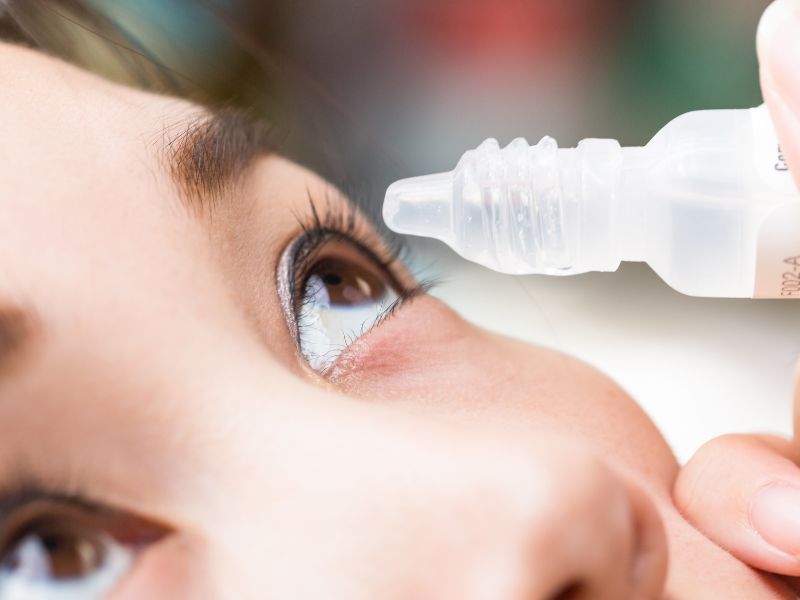Which Vitamin Keeps Eyes Healthy?
Maintaining good eye health is essential for overall well-being. As we age, our eyes can become more susceptible to various conditions, including cataracts, macular degeneration, and dry eye syndrome. While regular eye check-ups and protective eyewear are crucial for eye care, nutrition also plays a significant role in keeping our eyes healthy. One of the most important nutrients for eye health is vitamins. In this blog post, we will explore which vitamin keeps eyes healthy and how it contributes to optimal vision.
The Importance of Vitamins for Eye Care
Vitamins are organic compounds that our bodies need in small amounts to function correctly. They play a vital role in various bodily processes, including vision. Certain vitamins have been shown to protect the eyes from damage caused by free radicals and oxidative stress, which can lead to degenerative diseases.
Vitamin A: The Eye Health Superstar
When discussing vitamins for eye care, Vitamin A often takes center stage. This fat-soluble vitamin is crucial for maintaining good vision and overall eye health. Here’s how Vitamin A contributes to eye care:
1. Role in Vision
Vitamin A is essential for the formation of rhodopsin, a pigment found in the retina that allows us to see in low-light conditions. Without adequate levels of Vitamin A, night blindness can occur—a condition where individuals struggle to see in dim light.
2. Protection Against Eye Diseases
Research has shown that Vitamin A may help reduce the risk of developing certain eye diseases such as cataracts and age-related macular degeneration (AMD). These conditions are often associated with aging and can significantly impact quality of life.
3. Maintaining Eye Moisture
Vitamin A also plays a role in maintaining the health of the cornea—the outer layer of the eye—by promoting moisture retention. Dry eyes can lead to discomfort and even damage if left untreated.
Other Essential Vitamins for Eye Health
While Vitamin A is crucial for maintaining healthy vision, other vitamins also contribute significantly to eye care:
1. Vitamin C
Vitamin C is another powerful antioxidant that helps protect the eyes from oxidative stress caused by free radicals. It supports blood vessels in the eyes and may reduce the risk of cataracts and AMD.
- Sources: Citrus fruits (oranges, lemons), strawberries, bell peppers, broccoli.
2. Vitamin E
Like Vitamin C, Vitamin E is an antioxidant that protects cells from damage. Studies suggest that it may help lower the risk of cataracts and AMD when combined with other nutrients.
- Sources: Nuts (almonds), seeds (sunflower seeds), spinach, avocado.
3. Lutein and Zeaxanthin
Though not classified as vitamins per se, lutein and zeaxanthin are carotenoids found in high concentrations in leafy greens like kale and spinach. They filter harmful blue light and protect against oxidative damage within the retina.
- Sources: Kale, spinach, corn, peas.
How Much Do You Need?
The recommended dietary allowance (RDA) varies based on age and gender but generally includes:
- Vitamin A: Approximately 900 micrograms (mcg) per day for men; 700 mcg per day for women.
- Vitamin C: About 90 mg per day for men; 75 mg per day for women.
- Vitamin E: Roughly 15 mg per day.
It’s important to note that while supplements can help fill nutritional gaps, obtaining these vitamins through a balanced diet rich in fruits and vegetables is ideal for optimal absorption.
Tips for Incorporating Eye-Friendly Vitamins into Your Diet
To ensure you’re getting enough vitamins essential for your eye care routine:
- Eat a Rainbow: Incorporate colorful fruits and vegetables into your meals—think carrots (rich in beta-carotene), berries (packed with antioxidants), leafy greens (loaded with lutein), etc.
- Snack Smartly: Choose nuts or seeds as snacks; they are excellent sources of vitamin E.
- Consider Supplements Wisely: If you struggle to get enough nutrients through food alone or have specific dietary restrictions (like veganism), consider talking with a healthcare professional about taking supplements.
- Stay Hydrated: Proper hydration supports overall health—including your eyes—so drink plenty of water throughout the day!
Which Vitamin Keeps Eyes Healthy? – Conclusion
In conclusion, maintaining good eyesight goes beyond just regular check-ups; nutrition plays an integral role too! Among various nutrients essential for eye care, Vitamins A, C, E along with carotenoids like lutein and zeaxanthin stand out as key players in promoting healthy vision while protecting against common age-related diseases.
By incorporating these vitamins into your daily diet through wholesome foods rich in antioxidants—alongside practicing good habits like wearing sunglasses outdoors—you’ll be well on your way toward achieving optimal eye health! Remember—the best time to start caring about your eyesight was yesterday; the second-best time is today!
Visit our blog page for more articles

